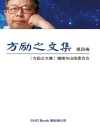This remarkable book never got to see the light of day when it was written two centuries ago. Its author, a Georgian doctor produced this examination of 18th century medicine at the same time as publishing an extremely controversial book on infection. Alexander Gordon had proved conclusively that puerperal (child-bed) fever was passed between patients by midwives. The idea met with outrage and hostility and saw him forced to leave his native city of Aberdeen, leaving behind hundreds of carefully penned pages of The Practise of Physick, a near-complete general text of medicine. Incredibly the final page of the original script even stops in mid-sentence as if the writer had fled there and then. Gordons remarkable unseen work has lain practically untouched ever since. Now painstakingly reworked by Doctor Peter Bennett, himself a medical author of international reputation, it gives a vivid account of medicine in the late 18th century. It was a time of enormous change; the industrial revolution was getting underway, and we were deep in the period of the Enlightenment. The medical profession was alive with new and unsubstantiated theory. Medical dogma that had held sway for two millennia was being challenged but the discoveries of the 19th century were but a speck on the horizon. In the 1790s doctors were still cupping, bleeding and leeching. Medications often contained the highly toxic mercury; Tar Water enjoyed a completely unjustified reputation as a universal remedy; effective drugs were prescribed indiscriminately. The book helps to explain the thinking behind practices which we would now regard as mystifying but were thought of as entirely rational at the time. Gordon’s words provide a graphic and colourful account of life as a physician [and as a patient] two centuries ago. Arguably he lost his rightful place alongside the luminaries of medical history. Perhaps the book you hold in your hand will do something finally to redress the balance.
About the author
Peter Bennett is the co-author of a number of books, one of which has been translated into 8 languages. Based in the UK he normally immerses himself in the world of medicinal drug use. He was an advisor to the World Health Organization on the testing of drugs and his book on drugs in breast milk is used in hospitals across the world. Almost 50 years ago as a graduate of the University of Aberdeen he knew of the work of Alexander Gordon on child-bed fever but only more recently became aware of the remarkable manuscript which had lain practically unopened for 220 years. That document, a detailed and vivid account of the practices and medicine in the late 18th century was written by a Georgian physician who was forced to leave his home city for the audacity of his theories on the transmission of infection between patients. Long after his death they eerily proved to be valid. Peter Bennett, now retired, lives in Bath, UK where he has practiced medicine and raised his family for the last thirty years. This book is the result of an impelling desire to see a fellow physicians notes and observations on 18th century diagnosis and treatment finally recognized by their just place in the history of medical writing.












